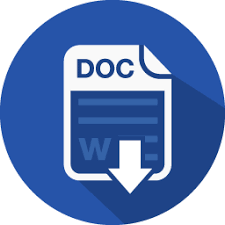Kepraktisan dan Efektivitas Media Flashcard Modifikasi pada Materi Interaksi antar Makhluk Hidup Bagi Siswa SMP/MTs
DOI:
https://doi.org/10.33752/ed-humanistics.v8i01.4862Abstract
Problems in education often occur due to a weak learning process, namely the lack of student interest
during the learning process. This is because most teachers direct students to understand theory only.
One solution to this problem is the existence of learning media. This study aims to describe the results
of the development of modified flashcard media based on its practicality and effectiveness. This
research is a development research that uses the ADDIE model which stands for analysis, design,
development, implementation, and evaluation. The subjects of this study were junior high school
students in grade VII. Practical data was obtained from student observations when using the media and
the distribution of student response questionnaires after using the media. Then effectiveness data was
obtained from student postests after studying the interaction material among living things using
modified flashcard media. From the results of this study, it was found that modified flashcard media is
very practical with an average score of 93.2% and very effective with an average score of 87.1%. Thus
this learning media is very well used in the material of interaction among living things.
Downloads
Downloads
Published
Versions
- 2023-10-06 (2)
- 2023-04-30 (1)
How to Cite
Issue
Section
License
License1. Proposed Policy for Journals That Offer Open Access
Authors who publish with this journal agree to the following terms:
- Authors retain copyright and grant the journal right of first publication with the work simultaneously licensed under a Creative Commons Attribution License that allows others to share the work with an acknowledgement of the work's authorship and initial publication in this journal.
- Authors are able to enter into separate, additional contractual arrangements for the non-exclusive distribution of the journal's published version of the work (e.g., post it to an institutional repository or publish it in a book), with an acknowledgement of its initial publication in this journal.
- Authors are permitted and encouraged to post their work online (e.g., in institutional repositories or on their website) prior to and during the submission process, as it can lead to productive exchanges, as well as earlier and greater citation of published work (See The Effect of Open Access).









 Template
Template


